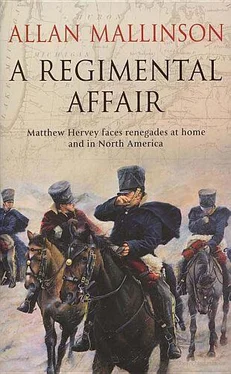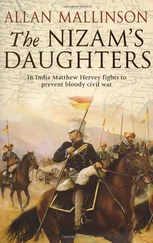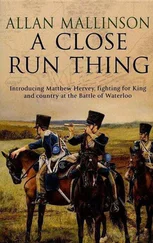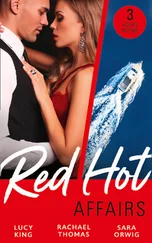‘Let me demonstrate, sir,’ said the American, taking back the arm. ‘It is, if I may say so myself, a particularly tidy method. Each time the pan-cover is shut down for discharge, this ratchet and pawl here puts successive deposits of priming powder into the flash pan by turning a feed plug — you can’t quite see it with the arm assembled, sir — at the bottom of the steel.’
Hervey shook his head and smiled in admiration again. ‘May I fire it myself?’
‘Why of course, Captain Hervey. Let my assistant load the chambers first and fill the priming magazine, and then you shall put the spring under tension and fire at will.’
Collier’s assistant handed Hervey the loaded arm and asked if he wished the roundel to be replaced. Hervey replied that this should not be necessary since they were sure that there were seven hits there already.
‘Shall I fit the butt to it, sir, so that you may fire it as carbine?’ asked Collier, holding up the extension.
‘No thank you. I should like to feel its balance as a pistol, for the barrel is uncommonly long. Do I presume it is rifled?’
‘Indeed it is. With nine lands. That is what gives it its accuracy. I wager I could have placed five marks on that roundel at twice the distance.’
Hervey was surprised by the ease with which he could hold the aim, for the barrel was in excess of two feet. He squeezed the trigger. The gun jumped back in his hand more than would the service pistol, but it was not excessive. He cocked again.
‘Close the pan, sir,’ prompted Collier.
Hervey fired again. There was not as much smoke as he expected, and he saw at once that the second round had struck the target too, on the outer ring again. He adjusted his aim and repeated the action — and then a fourth and a fifth time. It was extraordinarily handy. He could scarce believe it. The sixth and seventh rounds he fired with equal address. How perfect the weapon would be were it percussion-fired, as his own special carbine was. What odds then might a dragoon accept!
‘You are much impressed with it, yes, Captain Hervey?’ asked Collier.
‘Yes, yes indeed. But I must admit to one doubt, however, and that is the hardiness of the mechanism as a whole. For campaign service, I mean. I have doubts that it would stand up to a dragoon’s rough handling. And might it not be susceptible to dirt causing the rotation to jam?’
Collier’s response was eager. ‘When clean, and with a little oil on the working parts, there is no reason for it to do so, though I concur that to allow a great ingress of dirt would be to risk such an outcome. I have fired forty-two rounds in rapid succession, pausing only to reload the cylinder, without interruption.’
Hervey was to some extent reassured, but there was no doubting the danger in having a weapon which might fail in the exigencies of campaign service. Damp powder was a bad enough risk already with the service flintlocks.
‘But you must not accept my word alone for it, sir. I would be most honoured if you would take the arm for a month’s trial, and at the end of that period I would beg the favour of your recommending it — if you were to feel inclined, as I’m sure you shall — to the Duke of Wellington.’
So here, at last, was Collier’s purpose revealed. But no matter, thought Hervey. If the weapon were to prove as capable as it now seemed then he would have every wish to recommend it. ‘Yes,’ he replied. ‘I should be most happy indeed. Though I must tell you that I am no longer on the duke’s staff; neither might my opinion be of any moment with him.’
‘I am content with that, sir. I would send it myself to the Ordnance, but I believe it would be the better for having an advocate.’
Hervey was enjoying his celebrity. ‘Very well, Mr Collier. We shall see how it fares on Salisbury Plain.’
* * *
Next day Hervey woke early. Though the curtains were full-closed he could see it was not yet light, although there was already a noise of carting in the street. He thought to light a candle to see the time, but with a sick feeling he recalled that he no longer had a watch. He had ordered tea and shaving water to be brought at a quarter to seven, and a bath at a quarter past, so there seemed no great need for him to do anything but enjoy the remaining repose — such as might be with the noise of the carting traffic and the chorus of birdsong growing by the minute, dominated as the latter was by the far from melodious starlings.
He lay musing at how queer it was that so unbecoming a bird should have so pretty an egg. What had happened to his collection of them, he wondered? He had amassed so many in Horningsham before going to Shrewsbury. There were only two more days to the Ides, now. Such a time it would be in Wiltshire for natural history. The woodpigeons would have begun their soaring and their clapping and diving. There would be redwings and fieldfares getting ready to go north again after winter. And very soon — perhaps already — they would be replaced by sand martins come from Africa. These would be feeding high still, above the Wylye and the lake at Longleat, before returning to the crags to dig out last year’s nest holes. Might he get home in time to see the first swallows? The beginning of April was their habitual season. How dull might seem the village plumage after India, though.
Those garden birds would even now be courting a mate — and threatening their rivals — for tomorrow was a full month after St Valentine’s day. It was the better part of two years since his own affiancing, and he had not been able to make even one Valentine gift to Henrietta. Since his arriving in Paris, on the second of the month, where the duke had given him leave to proceed home, he had sent three expresses to Horningsham (or rather one to Horningsham and three to Longleat), the most recent only this last evening. But he had had none by return. There again, he had perforce changed his quarters so frequently and without notice that none could have found him. And in this latest express he had been able to say only that he fervently hoped to be in Wiltshire soon, and depending only on the Earl of Sussex’s pleasure (not that he truly expected a significant delay). Beyond that, what could he do but trust in Henrietta’s patience and say his prayers? And think of her, over and over again. Think of when they had enjoyed the woods and meadows of Longleat, first in childish innocence and then in faltering courtship. She had teased him when a child and tormented him when full-grown. Horningsham was Henrietta as much as it was his family.
Meanwhile the morning was fast advancing. His bath had not been as warm as he had hoped, and the fire — for which he had tipped one of the club’s servants handsomely to have banked up — was more smoke than flame, and certainly very little heat. Perhaps it was not really so chill, but his blood was still accustomed to the warmth of Madras, and a fresh March morning in London was not to be underestimated. He had shivered more than once. But a breakfast of kidneys and eggs and toasted bread (and coffee exemplary hot) had set him to rights, and he left for Albany feeling comfortable enough without a surtout.
The Earl of Sussex received him promptly. ‘My dear Captain Hervey, I am very glad we are met at last,’ he said, holding out his hand and, despite his years and a leg which a musket ball at the Helder had rendered half useless, closing briskly with him. ‘Sit you down, sir; sit you down!’
A footman placed a chair adjacent to the earl’s, and Hervey did as he was bid.
‘I generally have sherbet at this time. My digestion is not what it was. But yours, I should imagine, is plenty robustious. Would you care for Madeira?’
Hervey most certainly did. It was a taste to which he had become happily accustomed in Captain Peto’s company to and from the Indies.
Читать дальше












